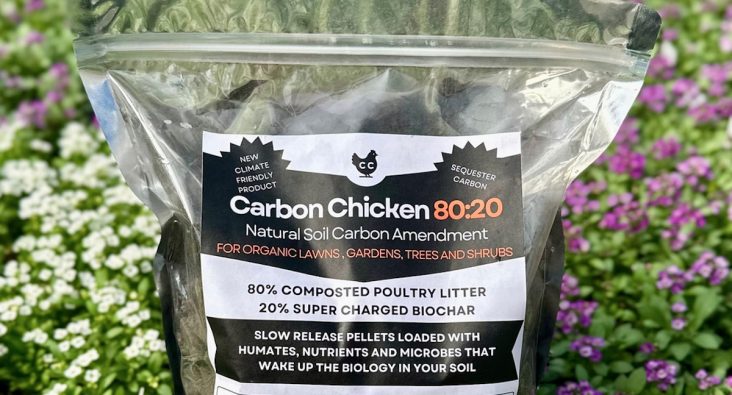USDA awards $591,000 to sustainable agri project in Arkansas and Oklahoma
by August 6, 2024 11:57 am 594 views

Carbon Chicken, a sustainable agriculture venture, has received a $591,000 grant from the U.S. Department of Agriculture to fund a 5-year project aimed at greenhouse gas-reducing carbon-negative agricultural practices in Northwest Arkansas and parts of Oklahoma.
Carbon Chicken was one of 53 awards funded this year in the Natural Resources Conservation Service’s innovation grants. The project, known as Carbon Negative Chicken Farming, includes Dr. Liz Haney at Soil Regen, Regen Ag Labs, Beyond Description Farm, Curva & Associates and four farm operations in Arkansas and Oklahoma.
“We are grateful to the U.S. Agriculture Secretary Tom Vilsack for this transformative investment by the USDA into the use of biochar and carbon-negative agricultural innovation in our region,” said Jody Hardin, CEO of Carbon Chicken Project and Carbon Negative Chicken Farming project director.
Hardin said the funding will increase farm income and resilience while also encouraging private investments in the carbon-negative farming industry to expand carbon sequestration, soil health, and biodiversity, and repair ecological damage within the Illinois River Watershed farming region.
Carbon Chicken is a blend of 80% chicken litter and 20% biochar that will reduce water pollution, upcycle waste, enhance soil health and sequester carbon to reduce CO2 emissions, according to Hardin, a five-generation Arkansas farmer. He has worked on the benefits of carbon sequestration for a decade and sees the practice as a way for farmers to be more regenerative with their practices.
Biochar is a “stable solid, rich in carbon that is made from organic waste material or biomass that is partially combusted in the presence of limited oxygen,” according to the USDA.
“This project is a game-changer for our community,” said Toua Yang, one of the four farmers in the projejct. “It provides real solutions to the poultry waste problem while helping us improve our soil and grow better crops.”
The Carbon Negative Chicken Farming Project said it engages with underserved farmers in the region dedicating over 70% of project funds to cash stipends, trees, biochar, technical support, plants, seed and labor.
“The Carbon Negative Chicken Farming Project is not just innovative, it’s essential. Carbon Chicken Project is creating a model for sustainable agriculture that can be replicated across the region and beyond,” said Dr. William McCoy, advisor and investor of the project.
In 2023, the U.S. Environmental Protection Agency estimated that agriculture accounts for 11% of the country’s greenhouse gas emissions and electricity end use and over half of these emissions are a result of animal emissions.
